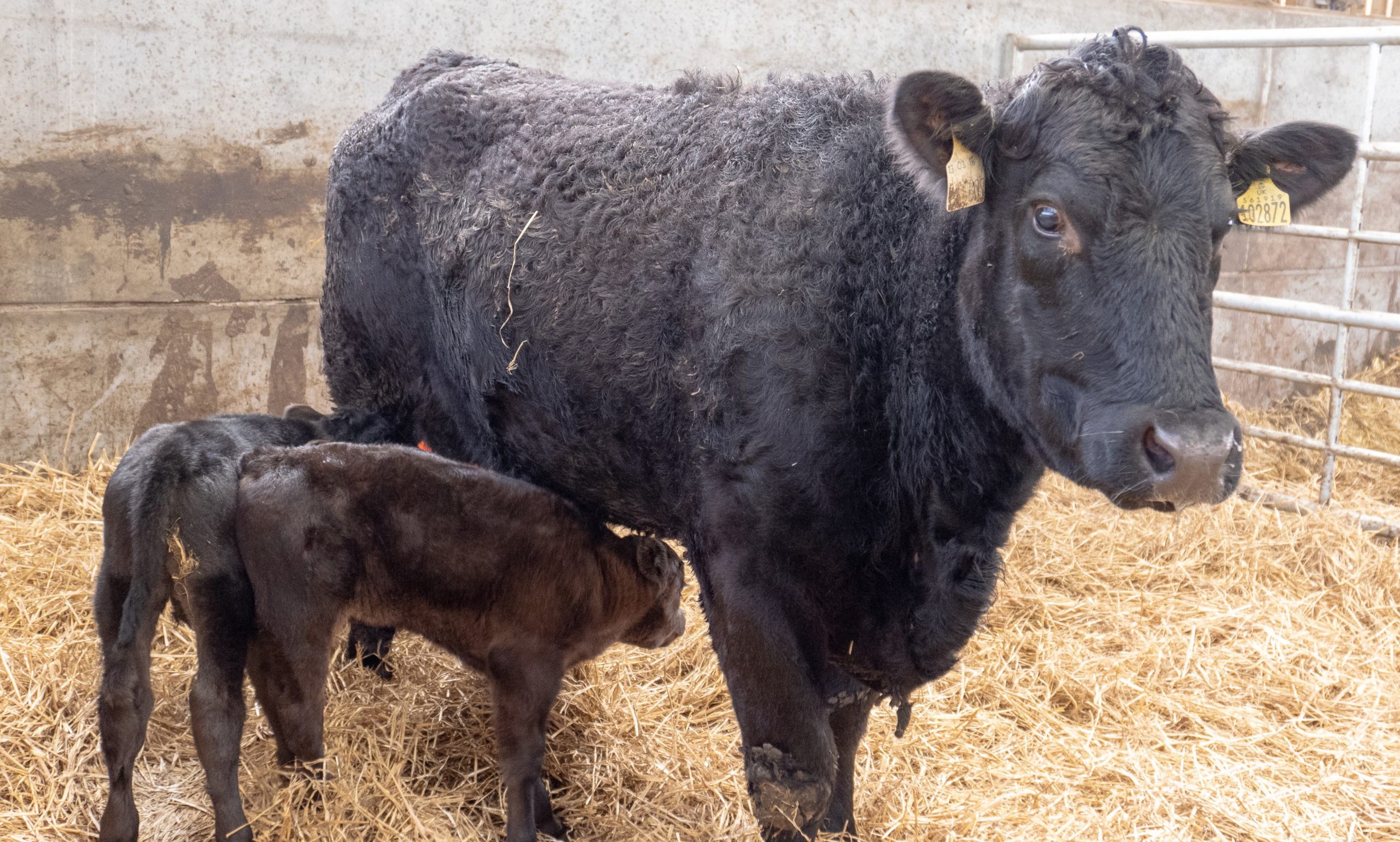Early pregnancy diagnosis (PD) in cattle has huge potential to improve business efficiency, reduce emissions and maximise profitability, says Robert Ramsay, Agriculture Specialist at SAC Consulting.
As part of research work for clients and its Farming for a Better Climate group (FFBC), SAC Consulting has been working with farmers and vets to look at the benefits of early pregnancy scanning to improve margins and cut carbon.
“The obvious advantage of scanning early is that empty cows are costing money and not gaining value, but minimising passengers is also a good news story for reducing emissions and meeting climate change targets,” says Mr Ramsay. “Another advantage is detecting twins early, which can be harder to identify later in the year, so you can increase nutrition for successful calving and getting the cow back in calf. These measures all have positive implications for the environment and the pocket.”
With cull prices high in recent years, farmers in Scotland have been taking advantage of culling out poor performers. SAC data* shows that achieving 5% greater calf numbers, by reducing barren cows and calf mortality, could improve finisher cattle sales by over 3 tonnes of liveweight per 100 cows, as well as reducing greenhouse gas emissions by 10% per kilogram of carcase weight.
The job of culling passengers to enhance herd performance is never complete, says Mr Ramsay and as we head into the autumn he urges farmers to book scanning in:
“Most spring calving herds will be looking to take bulls away from cows, if they haven’t already done so. Let your vet or scanning technician know as soon as you do this and get your scanning booked for the earliest practical opportunity. Ideally cows will be scanned by about six weeks post breeding. Although this job can be stressful and a bit of hassle, the information it provides is of huge value to a business.”
From his own experience, vet Tim Geraghty, from SRUC Veterinary Service, says:
“Even the ‘leanest’ systems will likely be handling cows in the coming months to facilitate weaning, a shift to autumn/winter systems or both. Getting a pregnancy test done at the same time is a low difficulty-high return intervention as it ensures only productive cows are carried into winter. Carrying empty cows not only increase costs directly, but also stocking density and disease risks at the worst time of year. There are very few beef herds that have such consistently high fertility performance and low wintering costs where a pregnancy test done at an early autumn management handling does not yield a cost: benefit.”
For those that scan after housing, it is often the case that empty cows are dosed and under a withdrawal before finding out they are not in calf, explains Mr Ramsay:
“The result of this is they have to be kept on an expensive winter ration for longer – creating additional work and consuming valuable resources, whilst not gaining in value. At a time where we are focussed on tightening our belts, these barren animals are not doing anyone any favours. When you know who is empty early in the autumn, create a group – hopefully not too big a group! – which can be managed separately and sold out the system at a time of the biggest advantage to the business and before they’ve cost you a lot of money and added to your carbon footprint.”
If PDing is left until later in the year, then twins are also harder to spot and often get missed, he adds, which can result in increased losses and poorer fertility in the following year.
The aim of FFBC, run by SAC Consulting, is to support farmers to find practical ways to cut carbon, increase sustainability, and move towards net-zero emissions within their farming system. This is through a combination of the findings from its volunteer Climate Change Focus Farms, the latest scientific research and discussion groups, and with an understanding of the wider context of the changing economic and policy landscape.
“Against a backdrop of reducing farmgate prices and changing support payments, farmers need to continue to strive for optimised performance in everything they do,” advises Mr Ramsay. “Those who get their house in order just now will be best placed to weather whatever the future has to hold.”
*Further information can be found on Working towards net zero carbon emissions: Improving fertility in the beef herd and for wider guidance and insights on farming for a better climate, see the FFBC website at https://www.farmingforabetterclimate.org or follow the latest project on Facebook and Twitter at @SACFarm4Climate.

